In the uncharted depths of our oceans, mysterious structures known as “Black Smokers” continue to fascinate scientists and spark urban legends。
These hydrothermal vents, located on the ocean floor, release mineral-rich plumes and are home to extraordinary ecosystems。
Despite their extreme environment—where temperatures soar and sunlight cannot penetrate—life not only survives but thrives。
What secrets do these smokers conceal, and how do they sustain such unique forms of life?
In this article, we explore the captivating mysteries surrounding these underwater marvels。
- The ecosystem surrounding Black Smokers defies conventional biological principles。
- These vents offer clues to the origin of life on Earth。
- The discovery of unknown species challenges our understanding of evolution。
- Black Smokers remain a subject of ongoing scientific research and urban myths。
- What Is a Black Smoker?
- The Wonders of Life Around Black Smokers
- What are the Legends Surrounding Black Smokers?
- The Fascination of the Unknown World Beneath the Deep Sea
- Deep Sea Research Unlocking the Future
- The Fascination of the Unknown World Beneath the Deep Sea
What Is a Black Smoker?
A black smoker is a hydrothermal vent found in the deep ocean, emitting mineral-rich black plumes resembling smoke.
This phenomenon is a key geological feature of the deep sea, forming primarily near plate boundaries.
Seawater heated by magma deep underground ejects sulfides and heavy metals as high-temperature hydrothermal fluid onto the seafloor.
This structure plays a crucial role in supporting unique ecosystems in the deep ocean.
Structure and Characteristics of Black Smokers
Black smokers mainly consist of chimney-like pillars formed by the discharge of hydrothermal fluid.
These chimneys are built from minerals such as iron sulfide that solidify and accumulate over time.
The pillars can range from a few meters to tens of meters tall, surrounded by unique biological communities.
Composition and Properties of Hydrothermal Fluid
The hydrothermal fluid is rich in minerals such as iron, sulfur, and heavy metals.
The temperature of the fluid can reach between 300°C and 400°C, but due to high pressure in the deep ocean, it does not boil.
These unique conditions contribute to the formation of ecosystems specific to black smokers.
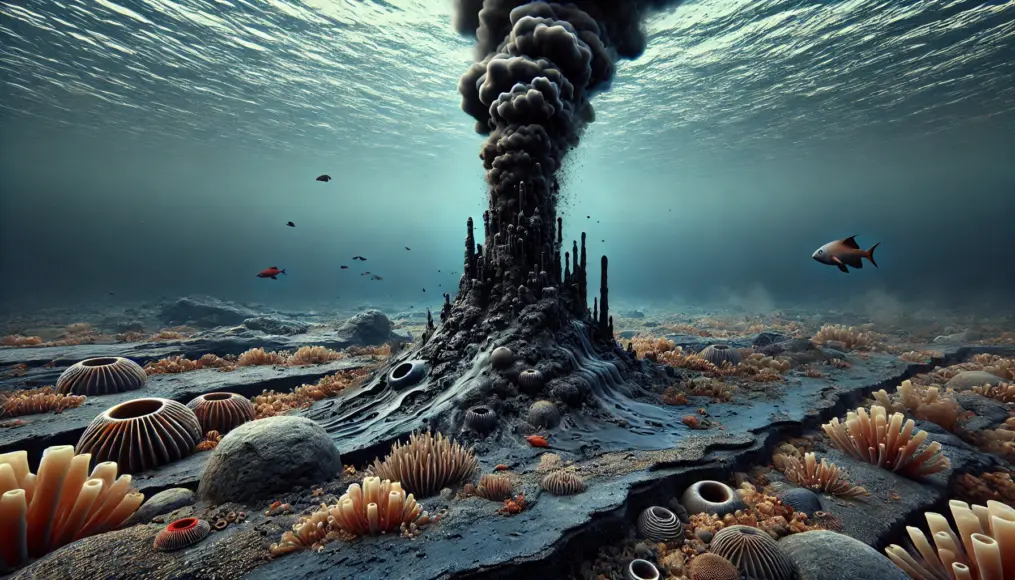
Formation Process of Chimney Structures
During the formation of hydrothermal vents, seawater heated by magma dissolves minerals as it circulates through the Earth’s crust.
When this heated water exits to the seafloor, the rapid cooling causes minerals to solidify, creating chimney-like structures.
Over time, these structures grow and form unique seafloor landscapes.
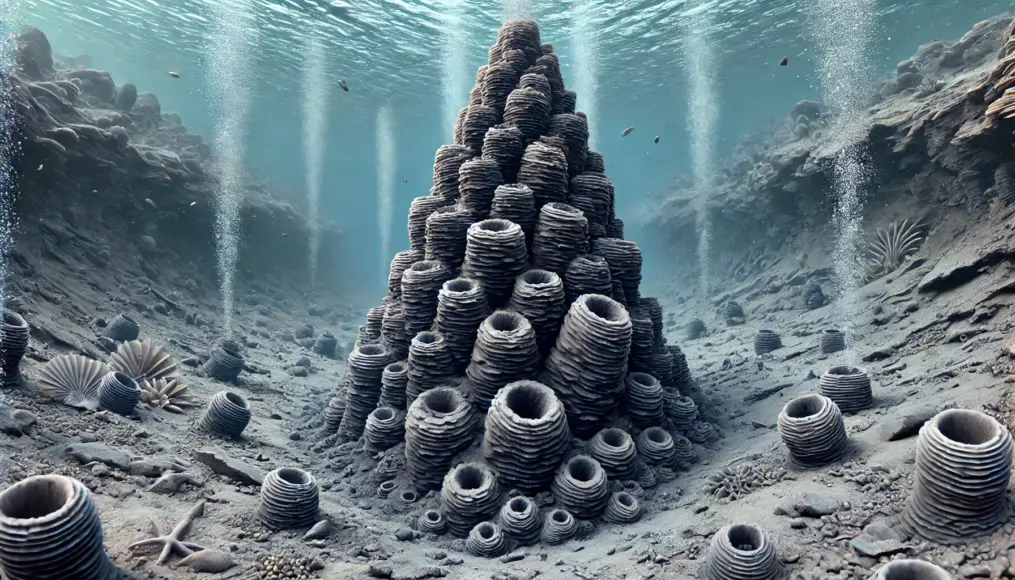
Formation Environment of Black Smokers
Black smokers are predominantly found near mid-ocean ridges or plate boundaries.
These regions are characterized by plate divergence and magma rising close to the crust, fueling active hydrothermal circulation.
Under these conditions, chemical substances from deep underground precipitate on the seafloor, shaping distinctive formations.
Representative Distribution Areas
Black smokers are distributed along major ridge zones in the Pacific, Atlantic, and Indian Oceans.
Notable areas include the East Pacific Rise and the Mid-Atlantic Ridge, where many vents have been discovered and extensively studied.
These regions provide ideal conditions for observing black smokers and advancing scientific research.
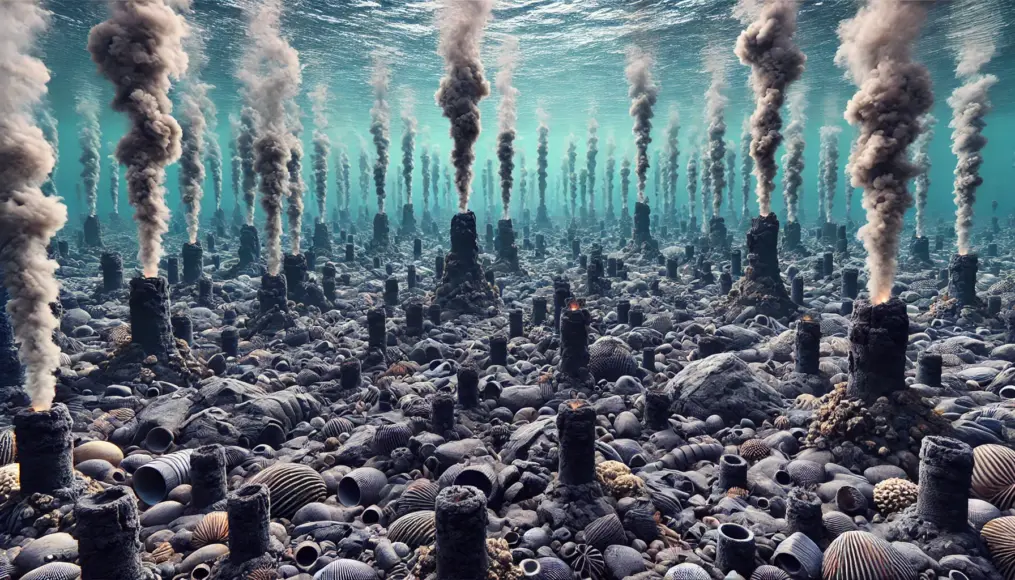
Global Role of Black Smokers
Black smokers play an essential role in global chemical cycling.
These hydrothermal vents supply key chemical components to the oceans and provide nutrients for specific ecosystems.
Scientists also study these phenomena to understand Earth’s internal structure and evolutionary processes.
Connection to Deep-Sea Ecosystems
Around black smokers, unique organisms thrive, adapting to high temperatures and toxic substances.
These organisms rely on chemosynthesis rather than photosynthesis, developing an energy cycle distinct from other ecosystems on Earth.
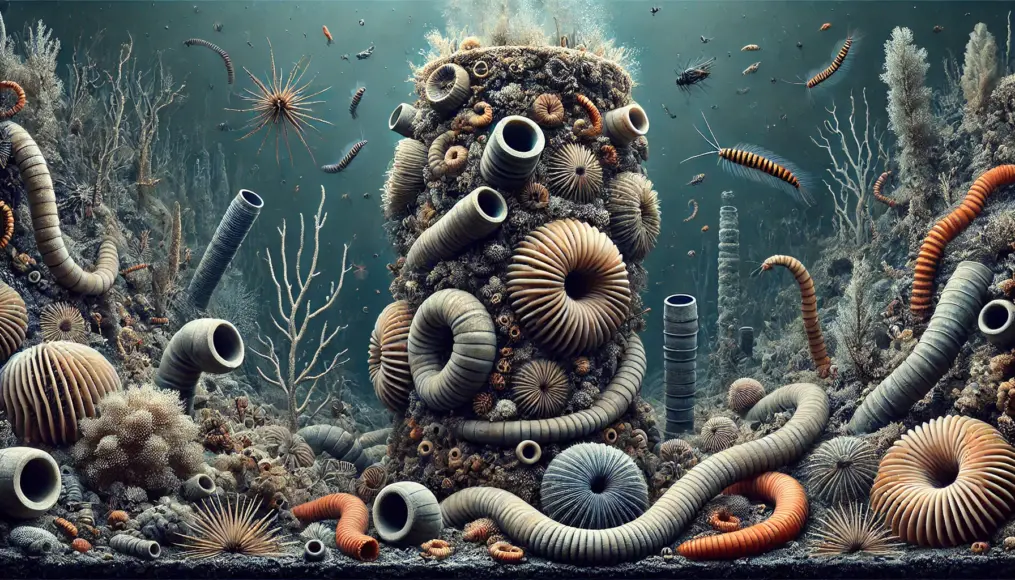
What Are Black Smokers?
Black smokers, also known as hydrothermal vents, are towering structures found on the deep ocean floor.
These vents release superheated water, rich in minerals and chemicals, into the surrounding seawater.
They form when mineral-rich water from beneath the Earth’s crust interacts with cold ocean water, creating unique ecosystems.
Understanding black smokers is crucial for exploring extreme environments and the possibility of life beyond Earth.
The Wonders of Life Around Black Smokers
The environment surrounding black smokers is extraordinarily hostile yet teeming with life.
Temperatures exceeding 400 degrees Celsius and high levels of toxic sulfides make it inhospitable for most life forms.
Nevertheless, diverse species thrive here, challenging our understanding of life’s adaptability.
These organisms may hold clues to the origins of life and potential extraterrestrial habitats.
The Role of Chemosynthetic Microorganisms
Around black smokers, microorganisms use chemical synthesis to survive without sunlight.
They utilize hydrogen sulfide and methane to produce organic matter, forming the base of the food chain.
These microbes are pivotal in sustaining the unique ecosystem around hydrothermal vents.
Their existence broadens the possibilities of life in extreme and extraterrestrial environments.
Chemosynthesis and Unique Ecosystems
Chemosynthetic microbes are foundational to black smoker ecosystems.
They sustain larger organisms and demonstrate the remarkable adaptability of life in harsh conditions.
Studying these organisms reveals new enzymes and metabolic pathways, advancing biological research.
Such findings provide insights into early Earth’s biosphere and other planetary environments.
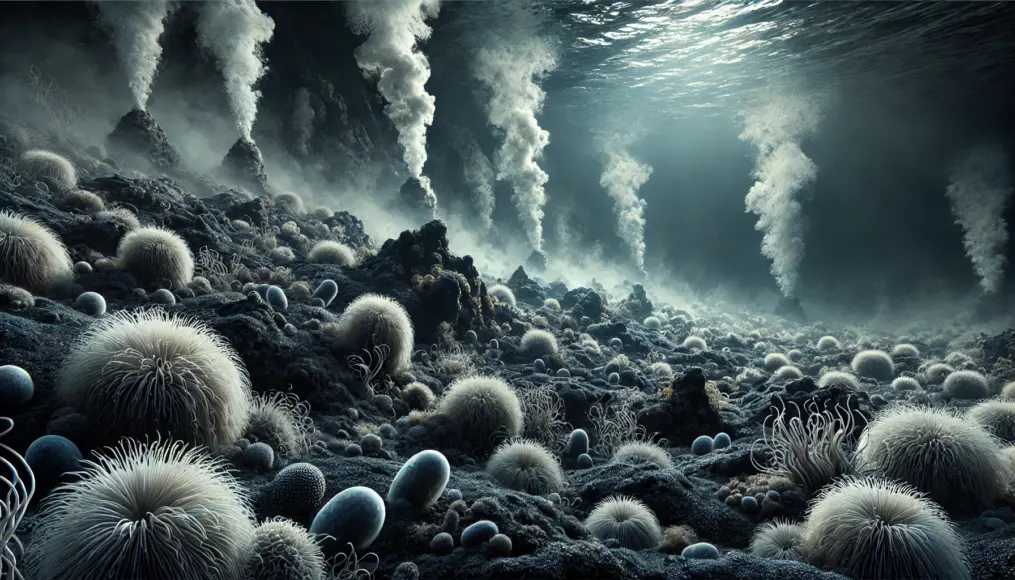
Evolutionary Marvels in Extreme Conditions
Numerous creatures near black smokers showcase extraordinary evolutionary adaptations.
Tube worms host symbiotic microbes, enabling them to survive by metabolizing sulfur compounds.
Deep-sea crabs and shrimp have developed unique survival strategies to endure high-pressure, toxic environments.
These adaptations highlight the incredible diversity and resilience of life on Earth.
Tube Worms and Symbiosis
Tube worms depend on chemosynthetic bacteria living inside their bodies for nutrition.
This relationship eliminates the need for conventional food sources, enabling survival in deep-sea vents.
The study of this symbiosis offers insights into co-evolution and life’s adaptability in extreme settings.
Such discoveries could inform research on potential extraterrestrial life.
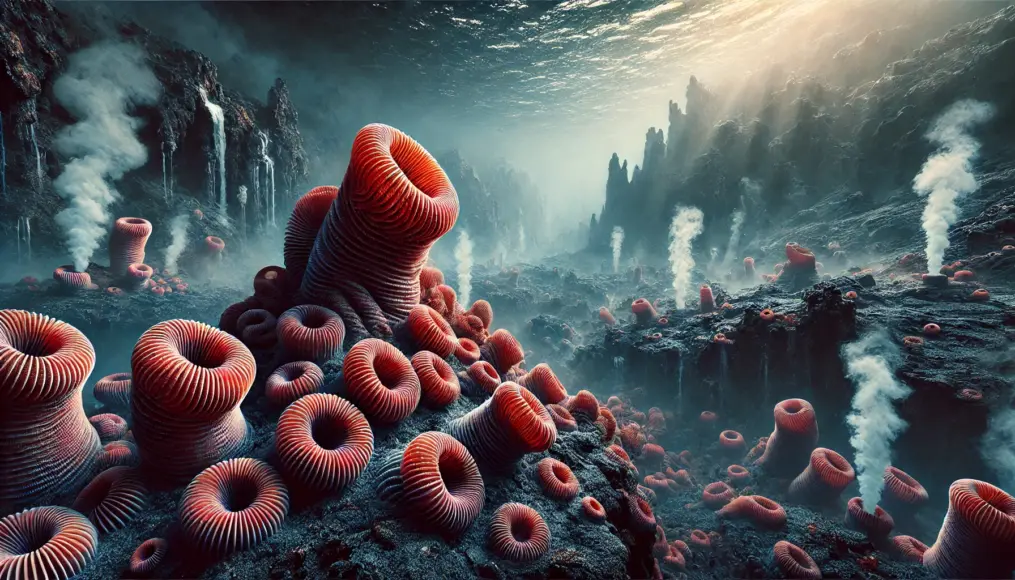
Unique Adaptations of Deep-Sea Crabs
Deep-sea crabs exemplify survival in challenging environments, feeding on chemosynthetic organisms.
Their specialized gills allow them to tolerate high temperatures and toxic substances near black smokers.
These crabs provide evidence of long-term evolutionary processes in extreme habitats.
They also offer a glimpse into life’s ability to adapt and thrive under pressure.
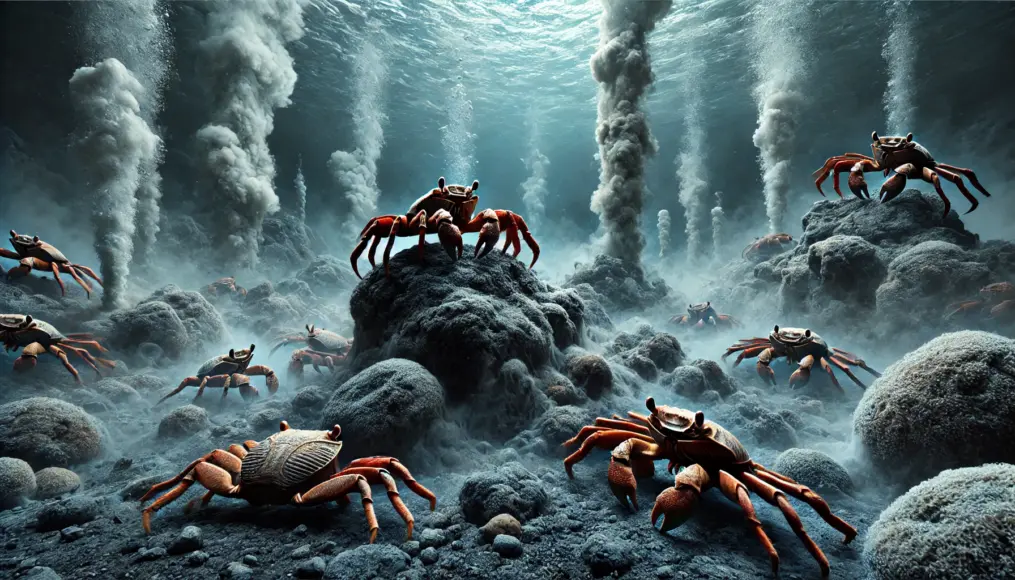
Insights Into Extraterrestrial Life
The ecosystems around black smokers offer a window into how life might exist on other planets.
Extremophiles found here resemble conditions thought to exist on moons like Europa and Enceladus.
Their survival strategies could inform future space exploration and the search for life in the cosmos.
By studying these organisms, scientists aim to unlock the secrets of life’s origins and adaptability.
The Significance of Extremophiles
Extremophiles thrive in conditions previously deemed uninhabitable, broadening the scope of life.
Their survival mechanisms provide models for understanding potential life on icy moons or high-radiation planets.
These findings enhance our comprehension of life’s resilience and its possibilities in the universe.
Research in this area bridges the gap between Earth’s deepest secrets and the mysteries of outer space.

What are the Legends Surrounding Black Smokers?
Black smokers, with their unique environment and unknown ecosystems, have given rise to many urban legends.
Among these, the stories of giant unknown creatures and ancient deep-sea civilizations draw significant attention.
This section delves into these rumors, exploring their scientific basis and why people are so captivated by these tales.
Rumors of Gigantic Unknown Creatures
There are rumors of creatures of extraordinary size lurking around black smokers.
Some deep-sea exploration teams have reported seeing massive shadows or unusual movements during their investigations.
These creatures are believed to be unique entities that evolved in the extreme environment of black smokers.
While these stories are considered urban legends, scientists are also intrigued by the possibility of undiscovered life forms.
Sightings of Giant Creatures
For instance, during an exploration in 2022, a sonar detected an enormous object near a black smoker.
This object was significantly larger than any known deep-sea creature, and its nature remains a mystery.
Some researchers suggest it could be a geological formation rather than a living organism.
Regardless, these sightings continue to fuel curiosity and interest in the unknown.
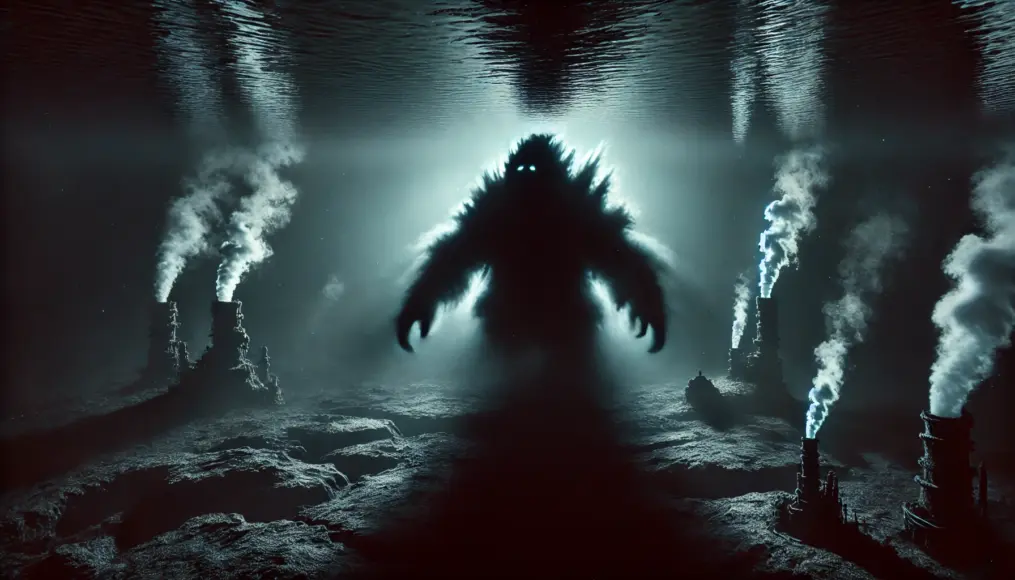
Scientific Examination of the Phenomenon
While scientists are skeptical about the existence of such giant creatures, they acknowledge the possibility of undiscovered species in the deep sea.
In the past, creatures like the “giant squid” or “megamouth shark,” once thought to be myths, were proven real.
These discoveries suggest that urban legends about unknown creatures may hold some truth.
The exploration of the deep sea continues to raise hopes for groundbreaking biological discoveries.
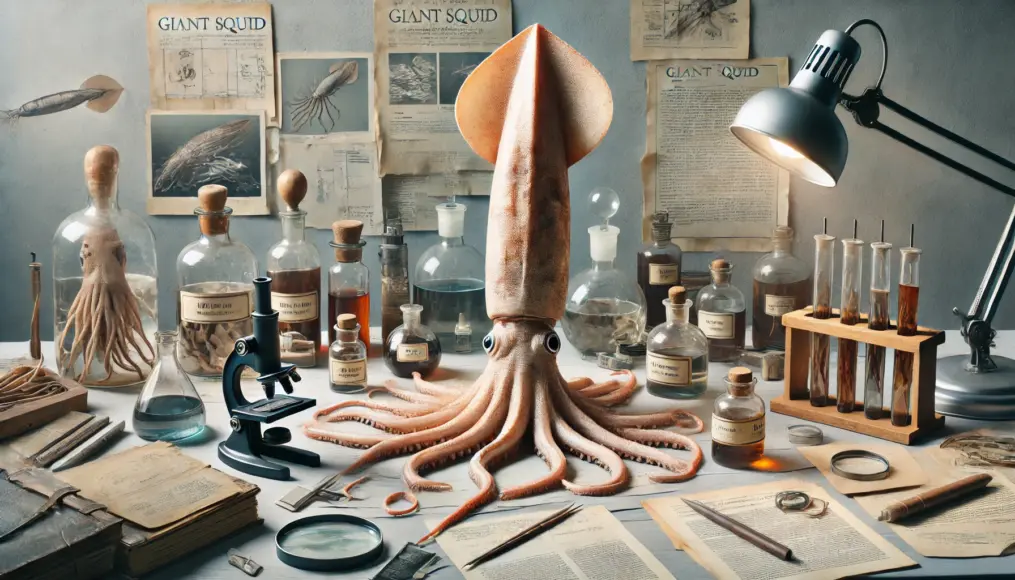
Legends of Deep-Sea Civilizations
There are also legends of traces of ancient civilizations near black smokers.
These tales are often linked to the lost city of Atlantis and other mythical underwater cities.
Despite numerous investigations and research, much remains unexplained about these legends.
People are fascinated by the possibility that ancient secrets might lie hidden in this mysterious region.
Structures Found on the Seafloor
Some divers have reported discovering formations near black smokers that appear to be man-made.
These structures are linear and remarkably organized, unlike natural formations.
Such discoveries have fueled theories that ancient civilizations might have lived underwater.
However, the possibility that these structures are simply geological phenomena cannot be ruled out.
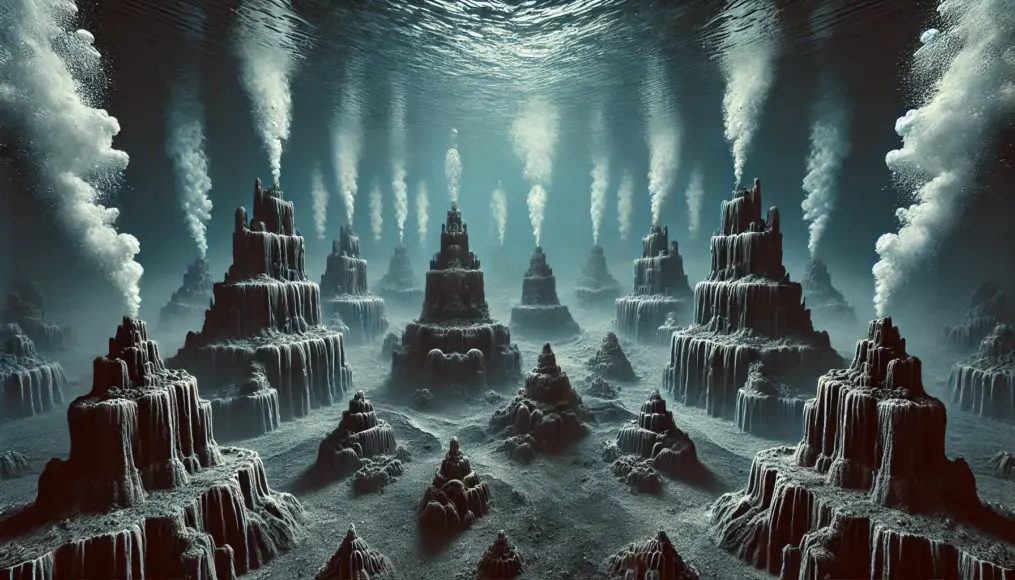
Intersection of Science and Legends
Scientists emphasize the likelihood that these structures are natural formations but do not entirely dismiss other possibilities.
Given the unique geology around black smokers, there are many unexplained phenomena, adding to the mystery.
The extreme environment of the deep sea might have preserved ancient traces of life or civilizations.
As a result, black smokers continue to be a focal point where science and urban legends converge.
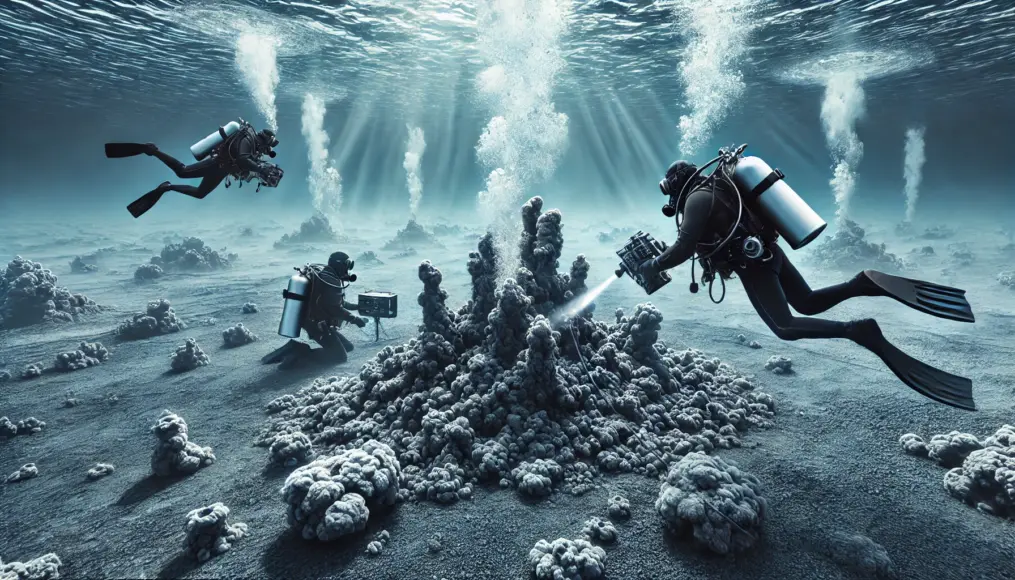
The Fascination of the Unknown World Beneath the Deep Sea
The mysteries of black smokers and the unknown creatures thriving in the depths reveal secrets of the Earth we have yet to uncover.
How life evolves and thrives in one of the harshest environments on the planet not only captivates scientists but also sparks the imagination of those intrigued by urban legends.
As research into potential connections with massive unidentified creatures or extraterrestrial life progresses, black smokers serve as a bridge between science and imagination.
Will the mysteries of the deep sea ever be fully unraveled?
Or will they only lead to more questions?
What are your thoughts after exploring these deep-sea enigmas?
We would love to hear your impressions and opinions in the comments!
Deep Sea Research Unlocking the Future
Deep sea research provides significant insights into extraterrestrial life and future scientific advancements.
Particularly, the study of black smokers plays a crucial role in understanding the evolution of life in extreme environments and advancing technology.
Let’s delve into how black smokers might influence our future.
Black Smokers Suggesting Extraterrestrial Life
The existence of black smokers offers vital clues for considering extraterrestrial life possibilities.
Life thriving in such extreme environments implies that similar ecosystems could exist on other planets or moons.
Notably, Jupiter’s moon Europa and Saturn’s moon Enceladus are of particular interest.
These celestial bodies are believed to harbor liquid oceans beneath icy surfaces, potentially housing hydrothermal vents similar to black smokers.
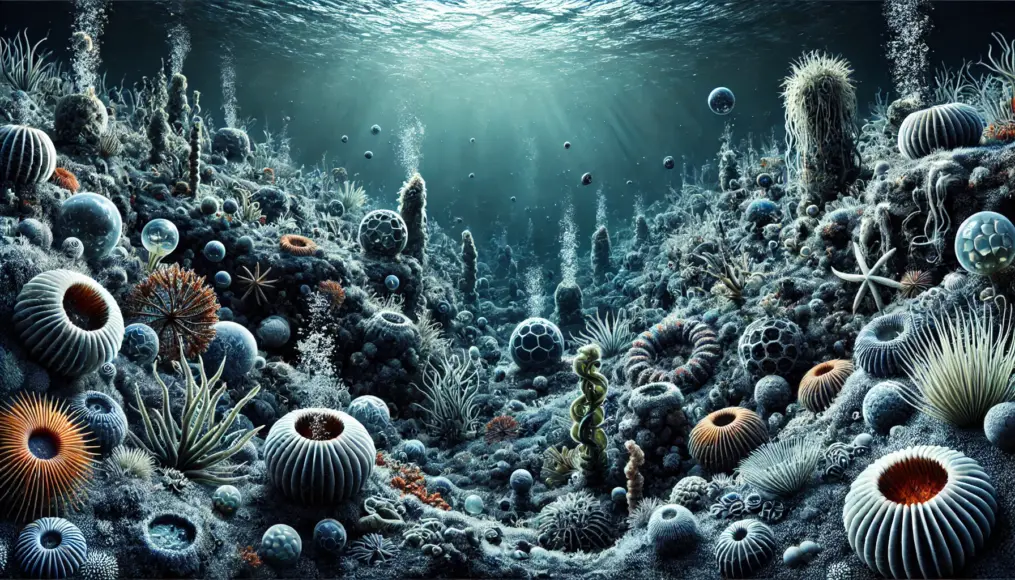
Environments on Europa and Enceladus
Europa and Enceladus are speculated to maintain liquid oceans in the freezing void of space.
In such conditions, hydrothermal vents may serve as energy sources.
Similar to ecosystems found near black smokers on Earth, these environments could harbor chemoautotrophic life forms.
Confirming this hypothesis would revolutionize astrobiology.

Technological Advancements Through Deep Sea Exploration
Deep sea exploration technologies drive scientific progress.
Specifically, unmanned submarines and pressure-resistant materials are vital for probing extreme environments, contributing to space exploration and other frontier sciences.
Data obtained from black smokers has significantly influenced the design of exploratory space probes.
These technologies benefit not only Earth’s uncharted territories but also distant celestial objects.
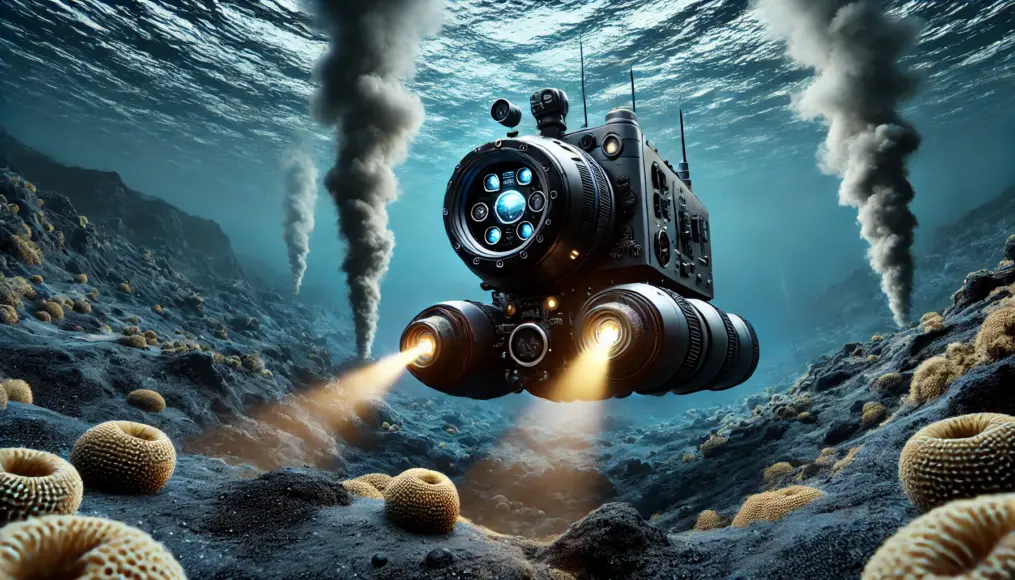
Specialized Materials for Extreme Conditions
Deep sea exploration demands materials and technologies resilient to extreme pressure.
These include pressure-resistant metals and advanced sensor systems.
Such innovations are adaptable to space exploration and continuously evolve through black smoker research.
These advancements lay the foundation for the next generation of science and technology.
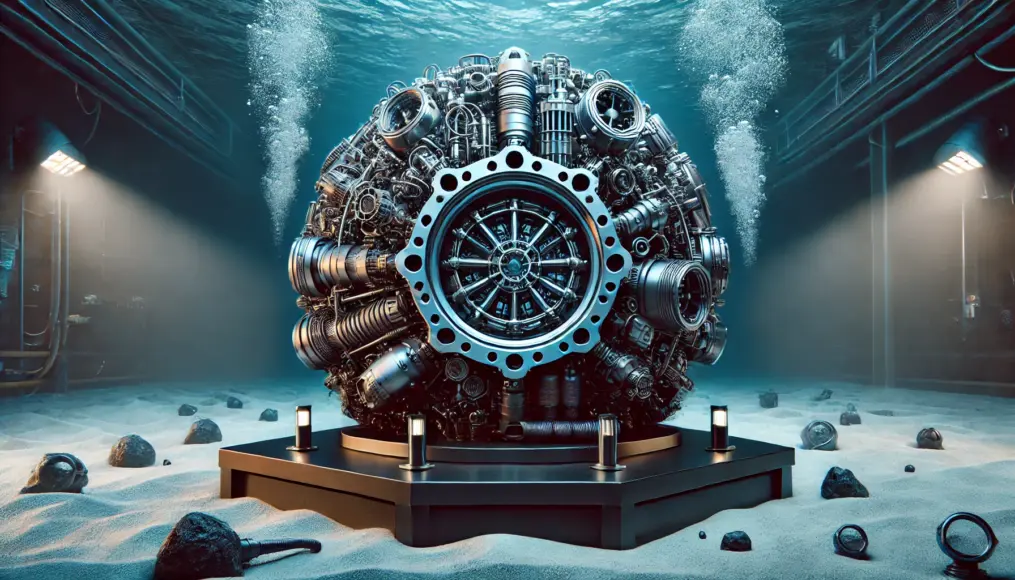
Black Smoker Resources and the Future
Black smoker regions are rich in mineral resources, such as gold, copper, and rare earth metals.
These resources hold potential for energy and industrial materials in the future.
However, balancing resource extraction with environmental conservation poses significant challenges.
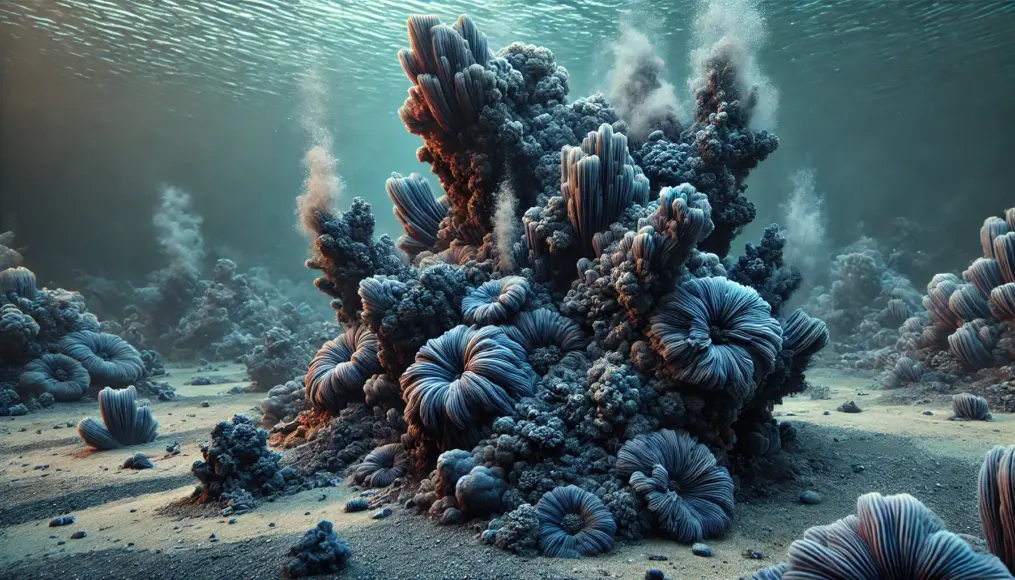
Resource Extraction and Environmental Conservation
Extracting minerals from black smokers entails environmental risks.
Scientists and engineers must collaborate to develop sustainable mining techniques.
Additionally, international agreements and legal frameworks are essential.
Efforts in this direction will shape the future of global sustainability.
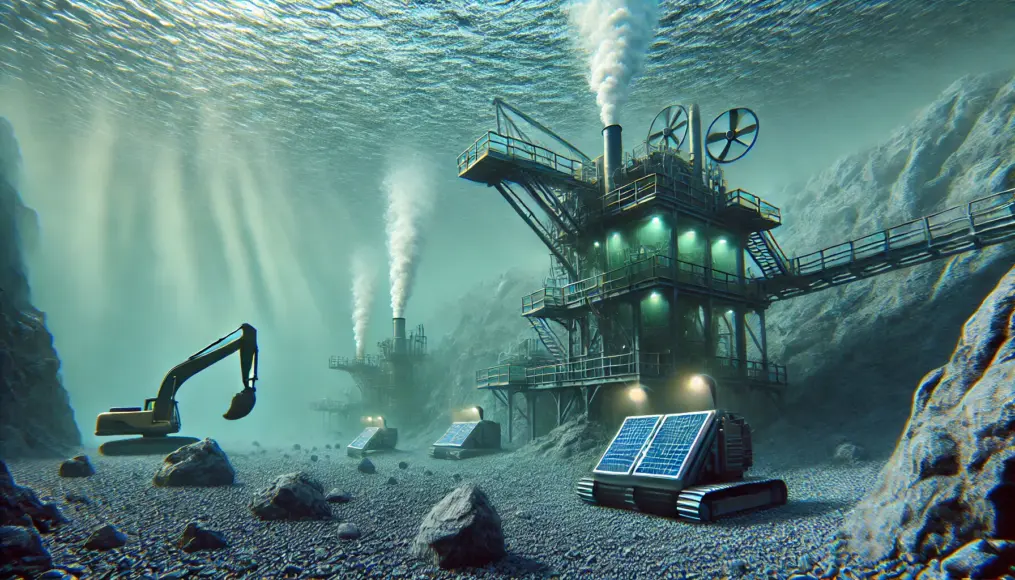
Urban Legends Amidst Scientific Discovery
Urban legends surrounding the deep sea continue to fuel imaginations.
Stories of undiscovered giant creatures and hidden underwater civilizations gain more intrigue as scientific research progresses.
Research into black smokers bridges the gap between myth and reality, inspiring curiosity worldwide.
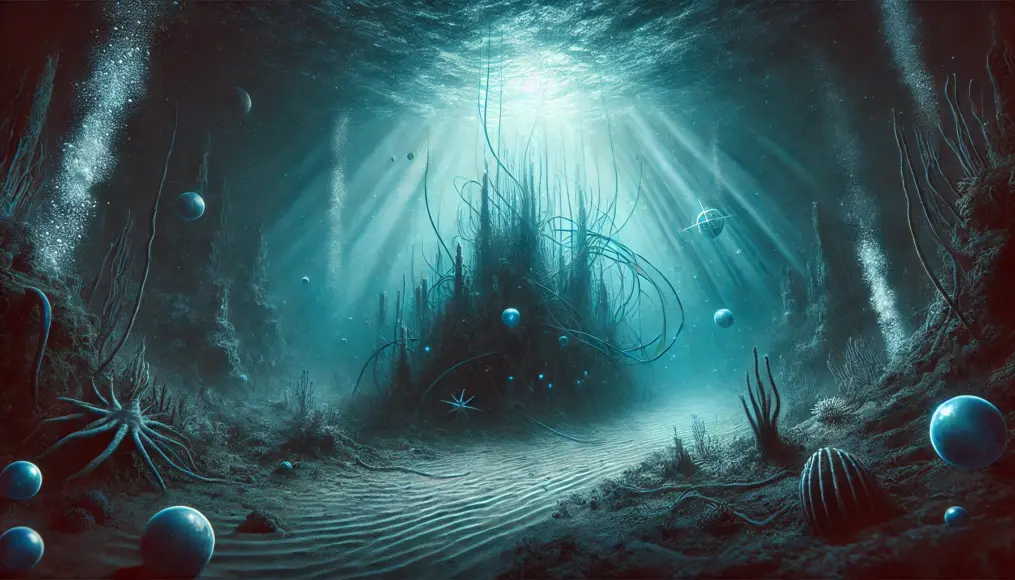
The Fascination of the Unknown World Beneath the Deep Sea
The mysteries of black smokers and the unknown creatures thriving in the depths reveal secrets of the Earth we have yet to uncover.
How life evolves and thrives in one of the harshest environments on the planet not only captivates scientists but also sparks the imagination of those intrigued by urban legends.
As research into potential connections with massive unidentified creatures or extraterrestrial life progresses, black smokers serve as a bridge between science and imagination.
Will the mysteries of the deep sea ever be fully unraveled?
Or will they only lead to more questions?
What are your thoughts after exploring these deep-sea enigmas?
We would love to hear your impressions and opinions in the comments!

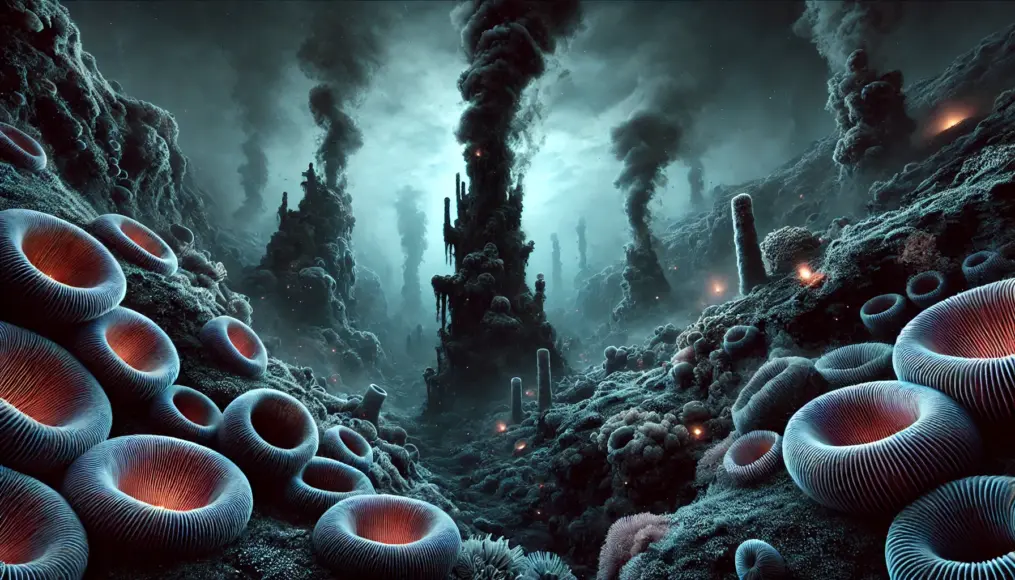


Comment